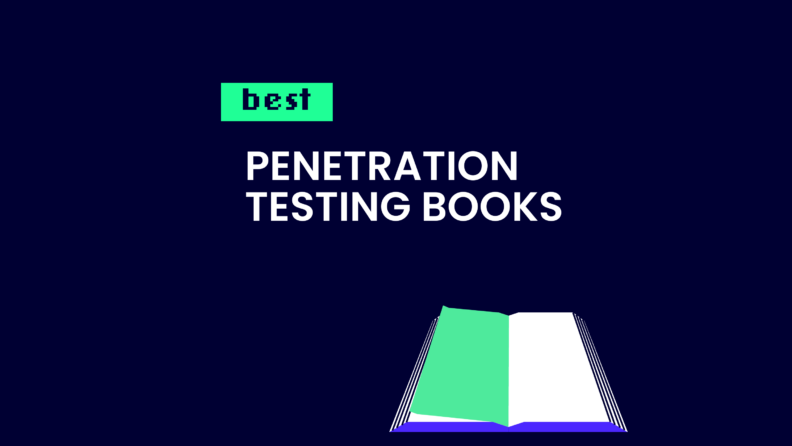In the dynamic world of information security, penetration testing books stand out as crucial guides. I've delved deep into these tomes—grasping complex exploit development, mastering the Metasploit framework, and honing practical skills. Whether exploring client-side threats, buffer overflow intricacies, or the nuances of algorithms and authentication, the right book can elevate your expertise.
With the demands of infosec evolving, both newcomers and seasoned security professionals benefit from continuous learning. From wordlists to web server vulnerabilities, these books provide a robust foundation. If you're seeking insights from someone who's walked the pages and implemented the lessons—you're in the right spot. Let's journey through these selections together.
For anyone interested in software quality, here are some fantastic software testing books you should explore.
17 Best Penetration Testing Books
I've handpicked the top 17 penetration testing books that directly address your challenges.
- The Web Application Hacker's Handbook: Finding and Exploiting Security Flaws by Dafydd Stuttard and Marcus Pinto
- Metasploit: The Penetration Tester's Guide by David Kennedy, Jim O'Gorman, Devon Kearns, and Mati Aharoni
- Black Hat Python: Python Programming for Hackers and Pentesters by Justin Seitz and Tim Arnold
- Penetration Testing: A Hands-On Introduction to Hacking by Georgia Weidman
- Hacking: The Art of Exploitation by Jon Erickson
- RTFM: Red Team Field Manual v2 by Ben Clark and Nick Downer
- The Shellcoder's Handbook: Discovering and Exploiting Security Holes by Chris Anley, John Heasman, Felix Lindner, and Gerardo Richarte
- The Basics of Hacking and Penetration Testing: Ethical Hacking and Penetration Testing Made Easy by Patrick Engebretson
- Advanced Penetration Testing: Hacking the World's Most Secure Networks by Wil Allsopp
- The Hacker Playbook 3: Practical Guide To Penetration Testing by Peter Kim
- The Mobile Application Hacker's Handbook by Dominic Chell, Tyrone Erasmus, Shaun Colley, and Ollie Whitehouse
- Gray Hat Hacking: The Ethical Hacker's Handbook by Allen Harper, Ryan Linn, Stephen Sims, Michael Baucom, Huascar Tejeda, Daniel Fernandez, and Moses Frost
- Nmap Network Scanning: The Official Nmap Project Guide to Network Discovery and Security Scanning by Gordon Fyodor Lyon
- Kali Linux 2018: Assuring Security by Penetration Testing: Unleash the full potential of Kali Linux by Shiva V. N Parasram, Alex Samm, Damian Boodoo, Gerard Johansen, Lee Allen, Tedi Heriyanto, and Shakeel Ali
- Linux Basics for Hackers: Getting Started with Networking, Scripting, and Security in Kali by OccupyTheWeb
- The Pentester BluePrint: Starting a Career as an Ethical Hacker by Phillip L. Wylie and Kim Crawley
- Practical IoT Hacking: The Definitive Guide to Attacking the Internet of Things by Fotios Chantzis, Ioannis Stais, Paulino Calderon, Evangelos Deirmentzoglou, and Beau Woods
Overviews Of The 17 Best Penetration Testing Books
Here’s a quick summary of each book, what you’ll learn, and why you should read it, plus a quote I like from the book. I added the author’s LinkedIn and other places to connect with them online.
1. The Web Application Hacker's Handbook: Finding and Exploiting Security Flaws by Dafydd Stuttard and Marcus Pinto
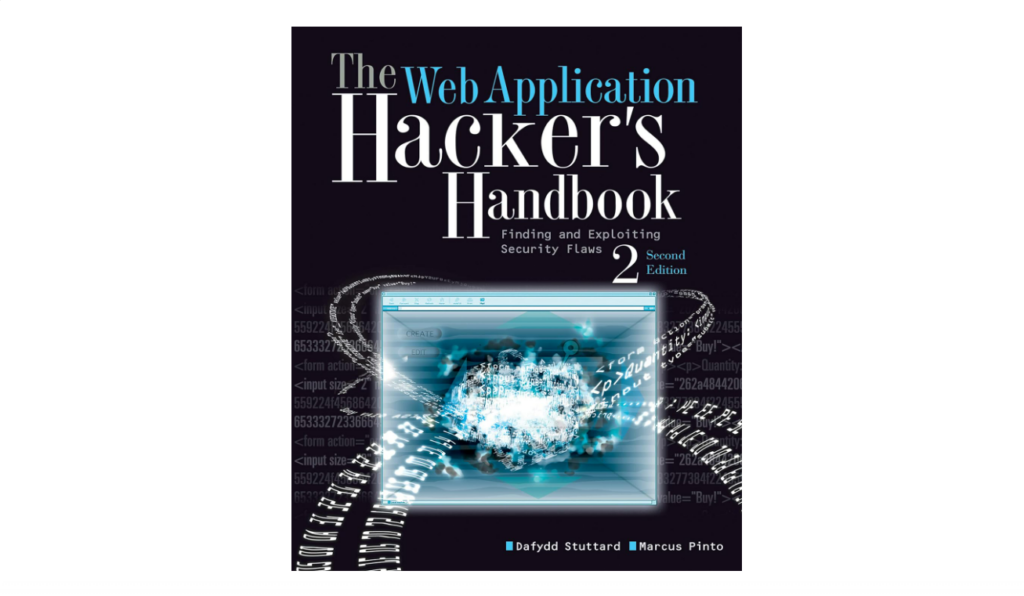
Summary:
This comprehensive guide delves deep into the realm of web application security. Drawing from their vast experience, Stuttard and Pinto offer hands-on techniques and practical methodologies to identify and exploit vulnerabilities in web applications.
What You'll Learn:
Master the art of discovering web application vulnerabilities, learn innovative techniques to bypass security controls, and equip yourself with indispensable tools and tactics used by top penetration testers.
Why You Should Read It:
This is a quintessential read for anyone aspiring to grasp the intricacies of web application security, filled with real-world examples and established methodologies.
Quote From The Book:
"Web applications are the front door to most organizations, exposing them to attacks that may disclose personal information, execute fraudulent transactions, or compromise ordinary users."
About The Author:
Dafydd Stuttard is a renowned cybersecurity professional with notable contributions to the industry. Connect with him on Twitter, or explore more on his personal website. Co-author Marcus Pinto is equally commendable in the realm of cybersecurity. Stay updated with Marcus on LinkedIn.
2. Metasploit: The Penetration Tester's Guide by David Kennedy, Jim O'Gorman, Devon Kearns, and Mati Aharoni
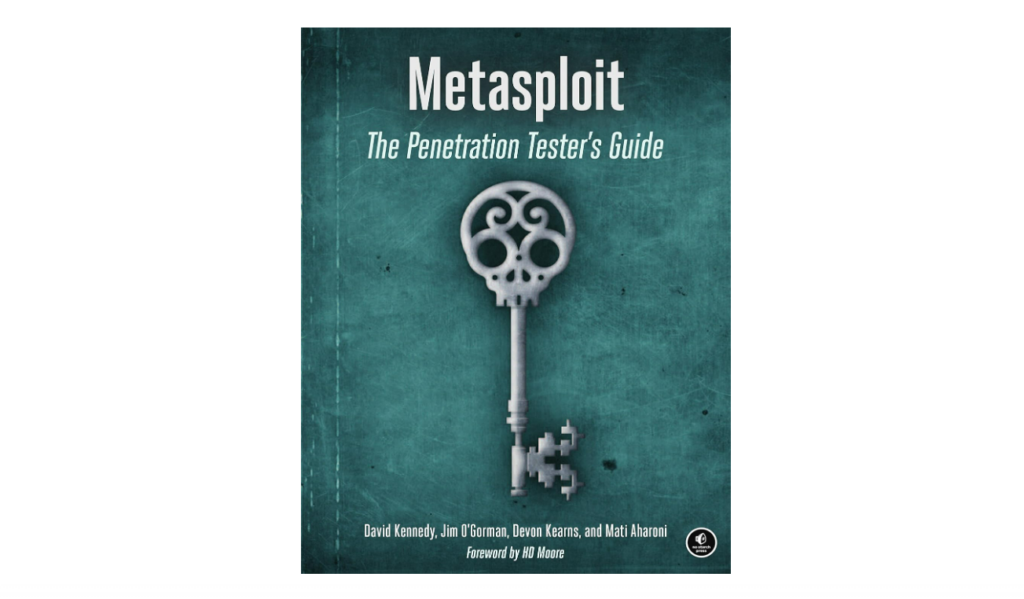
Summary:
Metasploit stands out as the premier open-source tool for penetration testing. This guide is an immersive journey into leveraging its capabilities, allowing readers to craft, customize, and execute advanced exploits.
What You'll Learn:
Delve deep into the construction, extension, and integration of plugins in Metasploit, master the art of advanced penetration tests, and learn evasion techniques to remain undetected.
Why You Should Read It:
A treasure trove for Metasploit enthusiasts, this book takes you beyond standard usage, making it an indispensable resource for both novices and veterans.
Quote From The Book:
"Every penetration test should tell a story. The goal of this story is to provide an organization with insight into the real-world threats they face."
About The Author:
David Kennedy has significantly impacted the cybersecurity domain with his expertise. Engage with David on LinkedIn, catch his latest thoughts on Twitter, or learn more about his contributions at his personal website. Collaborating authors Jim O'Gorman, Devon Kearns, and Mati Aharoni each bring unique insights and expertise, and connect with them on their respective platforms.
3. Black Hat Python: Python Programming for Hackers and Pentesters by Justin Seitz and Tim Arnold
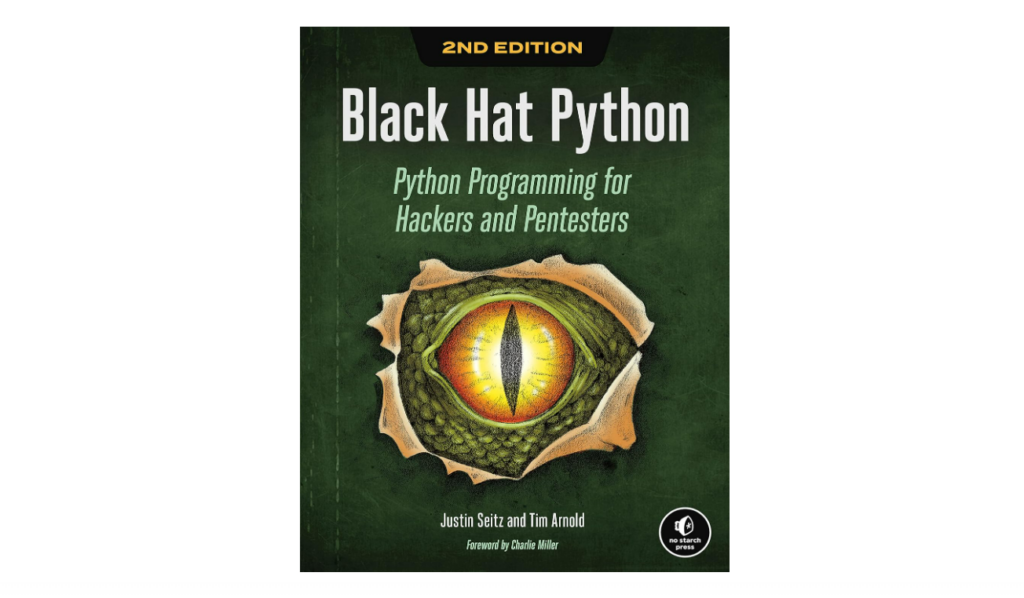
Summary:
Enter the thrilling domain of malicious hacking with Python. Seitz and Arnold showcase Python as the ideal tool for hacking tasks ranging from network reconnaissance to crafting malicious payloads.
What You'll Learn:
Equip yourself to craft stealthy trojans and sniffers using Python, manipulate network traffic for tailored exploits, and design payloads for extensive remote control.
Why You Should Read It:
This book is a unique blend of Python programming and hacking, offering readers actionable scripts and a profound understanding of a hacker's approach.
Quote From The Book:
"In a world of increasing complexity, simplifying our tools is not just good practice; it's a survival skill."
About The Author:
Justin Seitz is a celebrated figure in the intersection of hacking and Python. Connect with Justin on LinkedIn, and follow his insights on Twitter. Co-author Tim Arnold brings an impressive set of skills and knowledge to the table. Explore more about his works on Amazon.
4. Penetration Testing: A Hands-On Introduction to Hacking by Georgia Weidman
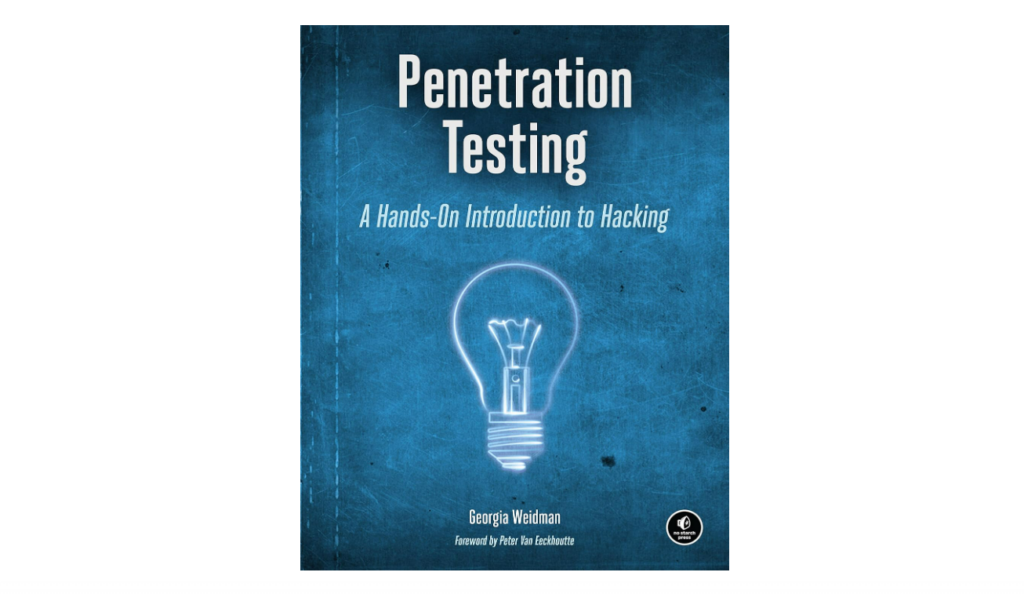
Summary:
Georgia Weidman's work stands as a foundational guide for those diving into the world of penetration testing. The book offers hands-on exercises, real-world examples, and introduces tools and techniques essential for successful hacking.
What You'll Learn:
Master the art of setting up a lab and the foundational tools, understand the intricacies of exploiting Android and iOS devices, and get acquainted with networking attacks.
Why You Should Read It:
This book serves as a holistic introduction to penetration testing, making complex subjects comprehensible for beginners while remaining valuable for experienced professionals.
Quote From The Book:
"Hacking is not some mystical science known only to the few. With patience, persistence, and this book, anyone can learn to hack."
About The Author:
Georgia Weidman is a seasoned penetration tester and security researcher. Connect with her on LinkedIn, and get updates on Twitter.
5. Hacking: The Art of Exploitation by Jon Erickson
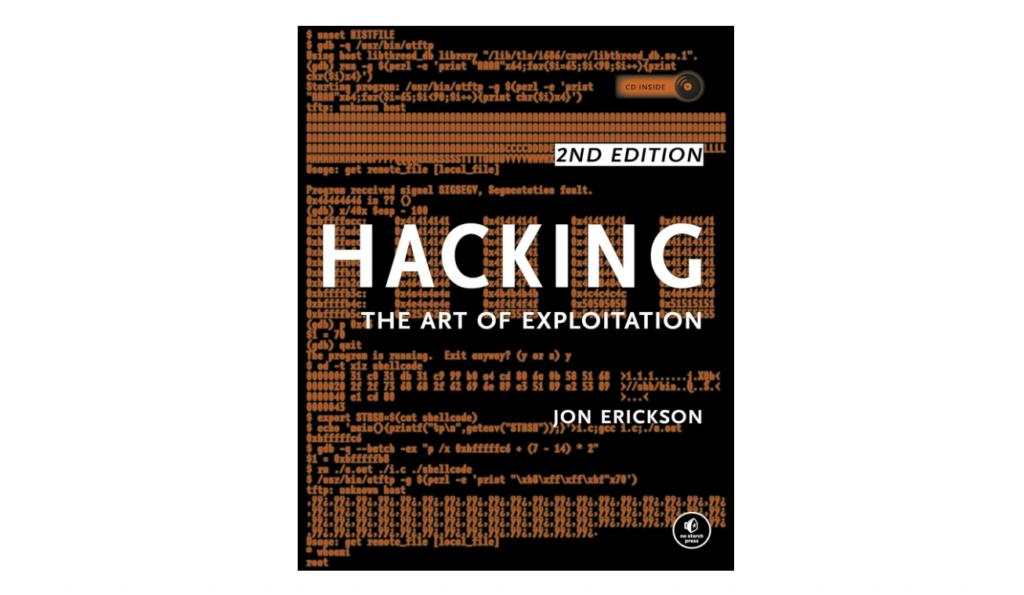
Summary:
Jon Erickson presents a comprehensive exploration of hacking, taking readers beyond mere theory and diving into the practical aspects of hacking with real code, exploits, and detailed discussions.
What You'll Learn:
Discover the world of programming from a hacker's perspective, delve into network communications and exploits, and understand the architecture of different systems and their vulnerabilities.
Why You Should Read It:
This book isn’t just about learning to program; it's about understanding the core of hacking and the art of thinking like a hacker.
Quote From The Book:
"To follow the path, look to the master, follow the master, walk with the master, see through the master, become the master."
About The Author:
Jon Erickson is an expert in the realm of computer security, exploitation, and low-level programming. While Jon maintains a lower profile online, his work in "Hacking" speaks volumes of his expertise.
6. RTFM: Red Team Field Manual v2 by Ben Clark and Nick Downer
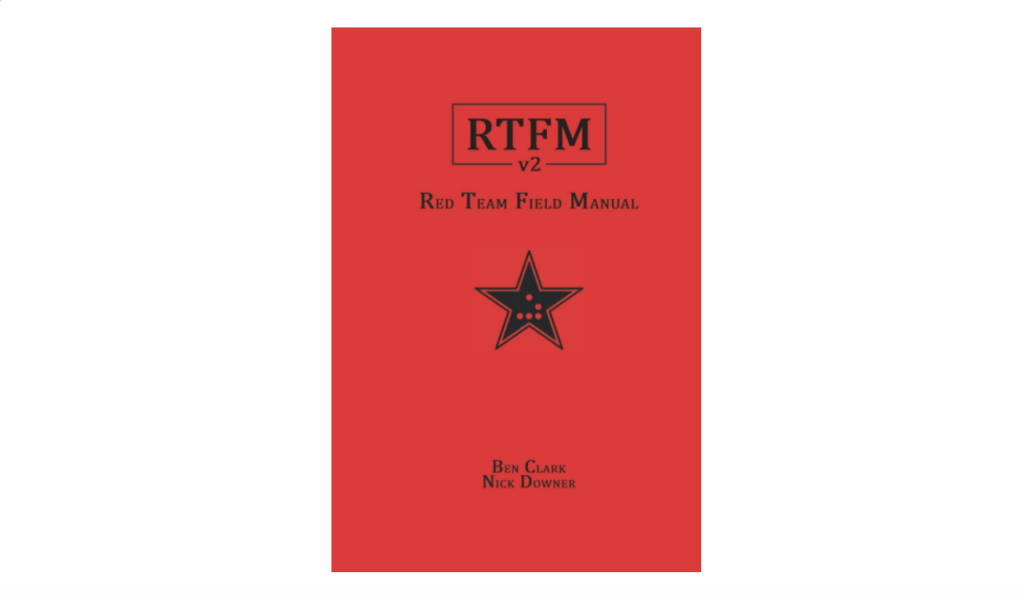
Summary:
"RTFM" is the go-to reference guide for red teamers. It's a compendium of essential commands, scripts, and tactics that seasoned professionals and beginners alike find invaluable during operations.
What You'll Learn:
Quickly reference essential commands for Windows, Linux, and networking tasks, understand scripting basics, and navigate common tools used in penetration testing and red teaming.
Why You Should Read It:
In high-pressure situations where every second counts, having a concise and well-organized manual can be a game-changer.
Quote From The Book:
"Knowledge is the foundation of effective offensive security."
About The Author:
Ben Clark and Nick Downer are known for their expertise in red teaming and penetration testing. While they keep a relatively low profile online, their combined knowledge in "RTFM" has been lauded by the cybersecurity community.
7. The Shellcoder's Handbook: Discovering and Exploiting Security Holes by Chris Anley, John Heasman, Felix Lindner, and Gerardo Richarte
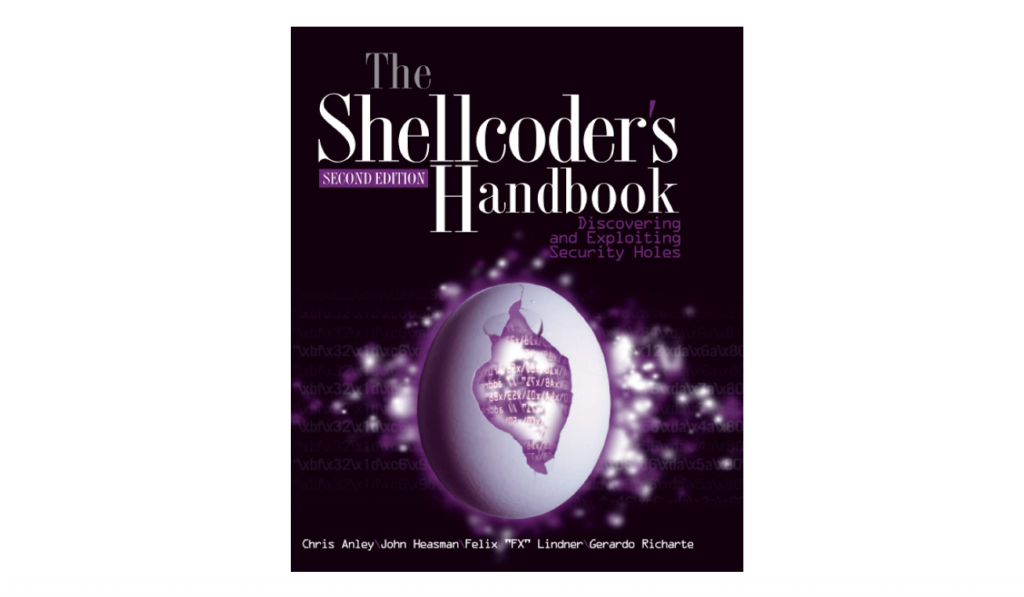
Summary:
This book serves as a deep dive into the world of uncovering security vulnerabilities. The authors explore advanced hacking techniques and showcase how attackers exploit security weaknesses.
What You'll Learn:
Master techniques to discover vulnerabilities in different operating systems, write shellcode for various exploits, and understand advanced bypass methods for modern security defenses.
Why You Should Read It:
If you wish to stay ahead of adversaries and comprehend the intricacies of security vulnerabilities, this book is a must-read, combining theory with real-world examples.
Quote From The Book:
"Understanding the vulnerabilities in code and the way attackers exploit them is key to building strong defenses."
About The Author:
Chris Anley and his co-authors John Heasman, Felix Lindner, and Gerardo Richarte are prominent figures in the cybersecurity domain. While they maintain a relatively private digital presence, their expertise shines through in their collaborative work.
8. The Basics of Hacking and Penetration Testing: Ethical Hacking and Penetration Testing Made Easy by Patrick Engebretson
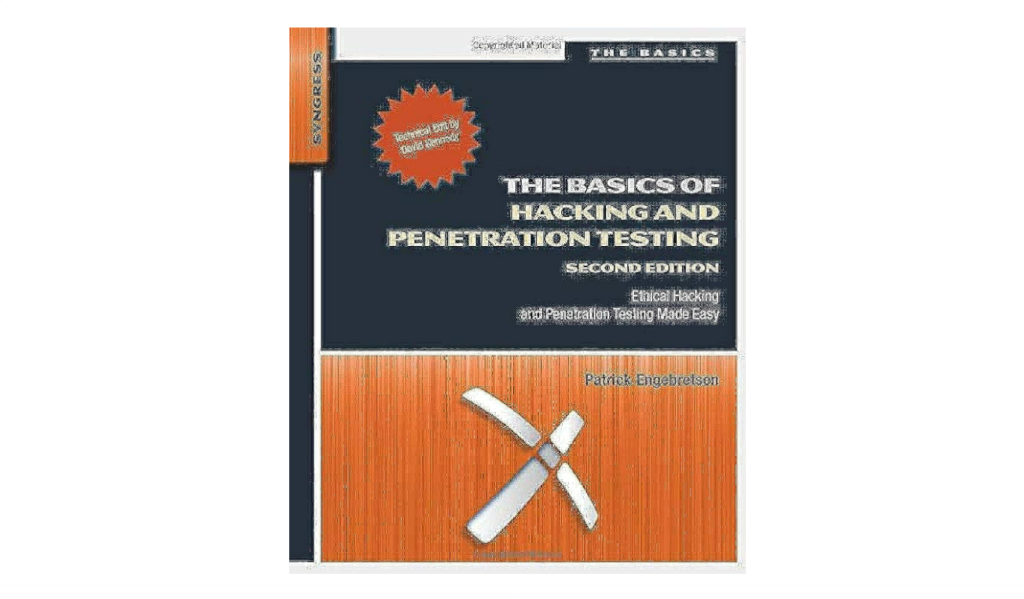
Summary:
Engebretson provides a step-by-step guide into the world of ethical hacking. The book lays out the foundational concepts of penetration testing, making it ideal for beginners.
What You'll Learn:
Understand the phases of a penetration test, from reconnaissance to exploitation, familiarize yourself with tools like Metasploit and Wireshark, and embark on your ethical hacking journey.
Why You Should Read It:
Tailored for those new to the realm of penetration testing, this book offers a clear and easy-to-follow roadmap, turning novices into competent ethical hackers.
Quote From The Book:
"The most effective way to protect a system is to understand the tools hackers use and know how to circumvent them."
About The Author:
Patrick Engebretson is an educator and author passionate about cybersecurity. Engage with Patrick on platforms like Twitter to learn more about his contributions to the industry.
9. Advanced Penetration Testing: Hacking the World's Most Secure Networks by Wil Allsopp
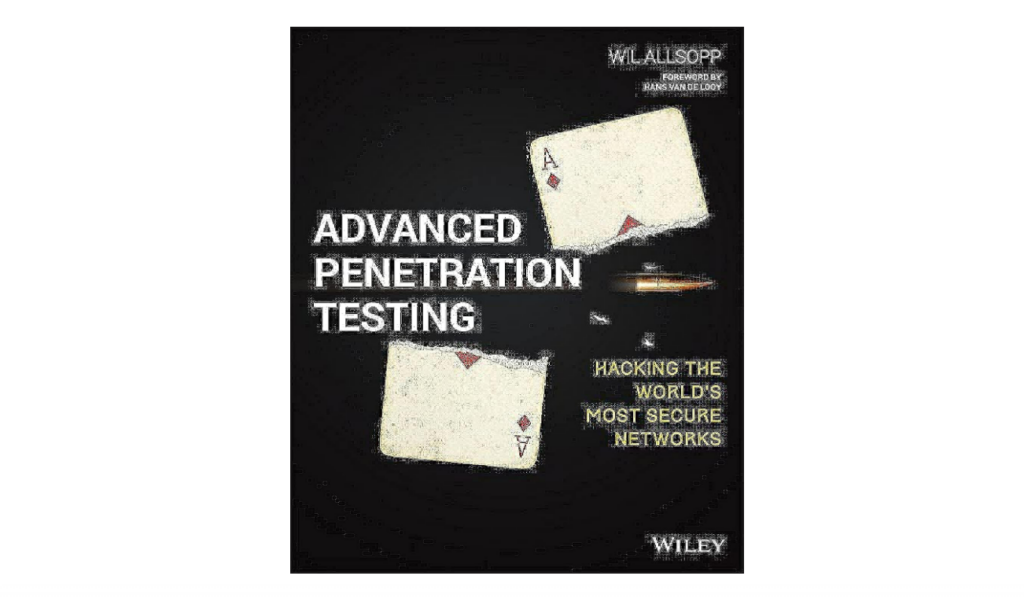
Summary:
Allsopp dives into high-end penetration testing, presenting scenarios and techniques that challenge even the most secure networks and systems.
What You'll Learn:
Develop advanced skills in social engineering, learn to evade modern detection techniques, and exploit powerful networking and system vulnerabilities to gain control.
Why You Should Read It:
This book is designed for professionals looking to escalate their penetration testing skills, providing a look into the mindset and tactics of elite hackers.
Quote From The Book:
"To truly understand system security, one must get into the mindset of the attacker, exploiting systems and networks in the most creative ways."
About The Author:
Wil Allsopp is a trusted figure in advanced threat response and cybersecurity. Dive deeper into his works through his Amazon portfolio
10. The Hacker Playbook 3: Practical Guide To Penetration Testing by Peter Kim
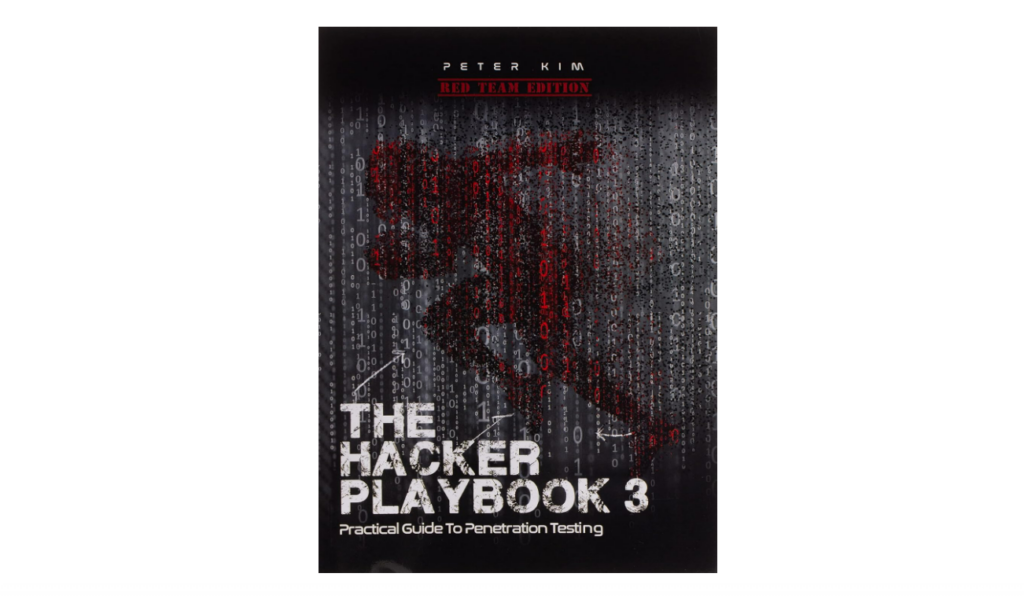
Summary:
Peter Kim's third installment in "The Hacker Playbook" series continues to deliver top-notch strategies in penetration testing. It's a comprehensive guide filled with practical methodologies, breaking down the complexity of real-world attacks.
What You'll Learn:
Techniques for advanced penetration testing, effective tools for different stages of an attack, and strategies to bypass even the most robust security defenses.
Why You Should Read It:
With insights from the trenches, this playbook ensures readers remain at the forefront of ethical hacking, combining practical exercises with theory.
Quote From The Book:
"If you’re not attacking your network, someone else will be."
About The Author:
Peter Kim is recognized for his significant contributions to the cybersecurity domain. Explore more about his works on his Amazon portfolio.
11. The Mobile Application Hacker's Handbook by Dominic Chell, Tyrone Erasmus, Shaun Colley, and Ollie Whitehouse
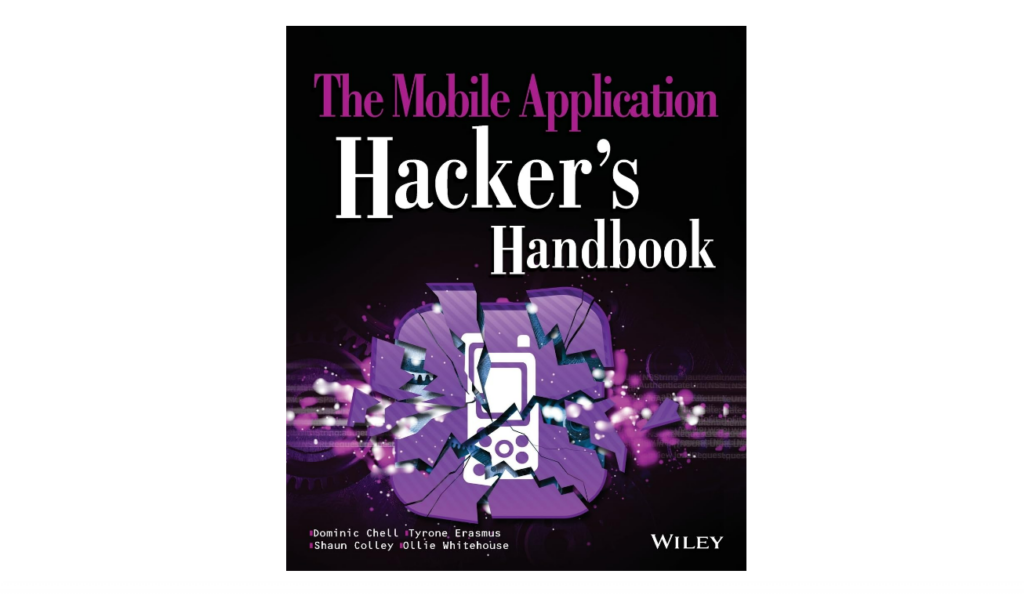
Summary:
In the age of mobile dominance, this handbook offers an exhaustive study of vulnerabilities in mobile environments. The authors dissect mobile application insecurities, providing tools and techniques for defense.
What You'll Learn:
In-depth methodologies for hacking both iOS and Android apps approaches to reverse engineering and strategies for securing mobile applications.
Why You Should Read It: As mobile becomes increasingly central to our digital lives, understanding its security vulnerabilities becomes essential. This book provides that essential knowledge.
Quote From The Book:
"Mobile security isn't just about the device; it's about securing the entire journey."
About The Author:
Dominic Chell, Tyrone Erasmus, Shaun Colley, and Ollie Whitehouse are leading experts in mobile security. Connect with Dominic on LinkedIn, Tyrone on LinkedIn, Shaun on LinkedIn, and Ollie on LinkedIn.
12. Gray Hat Hacking: The Ethical Hacker's Handbook by Allen Harper, Ryan Linn, Stephen Sims, Michael Baucom, Huascar Tejeda, Daniel Fernandez, and Moses Frost
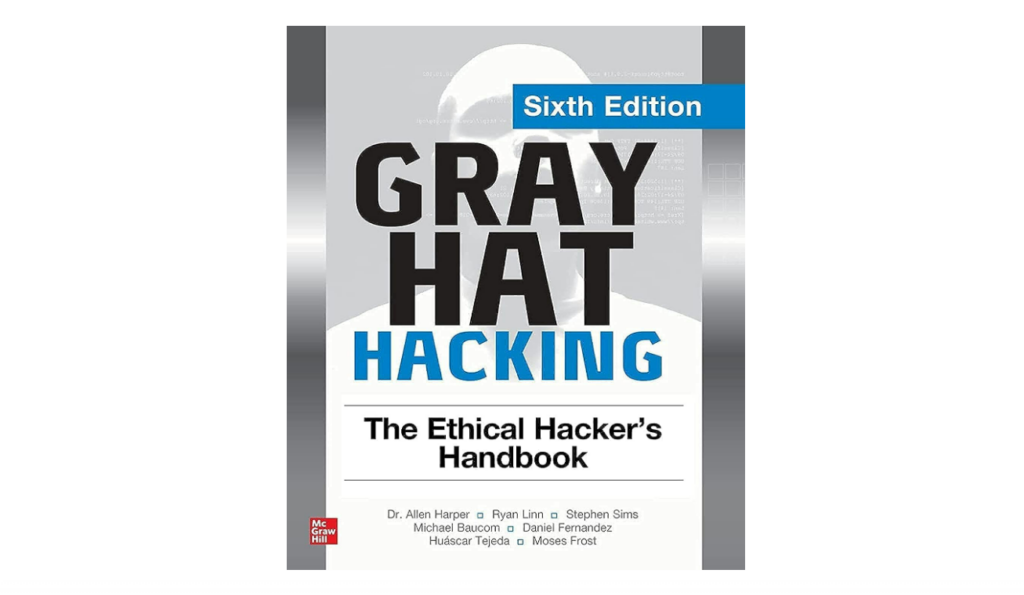
Summary:
Positioned at the intersection of ethical hacking and real-world attacks, "Gray Hat Hacking" unravels advanced techniques and tools used by hackers, presented with an ethical perspective.
What You'll Learn:
Advanced penetration testing techniques, strategies for malware analysis, and insights into the latest vulnerabilities and how to combat them.
Why You Should Read It:
This handbook is designed for those who wish to delve deeper into the world of ethical hacking, providing the knowledge needed to defend against sophisticated adversaries.
Quote From The Book:
"The best defense is understanding the offense."
About The Author:
The combined team of Allen Harper, Ryan Linn, Stephen Sims, Michael Baucom, Huascar Tejeda, Daniel Fernandez, and Moses Frost brings a rich tapestry of expertise in ethical hacking and cybersecurity. Their collective wisdom in the book establishes them as authorities in the field.
13. Nmap Network Scanning: The Official Nmap Project Guide to Network Discovery and Security Scanning by Gordon Fyodor Lyon
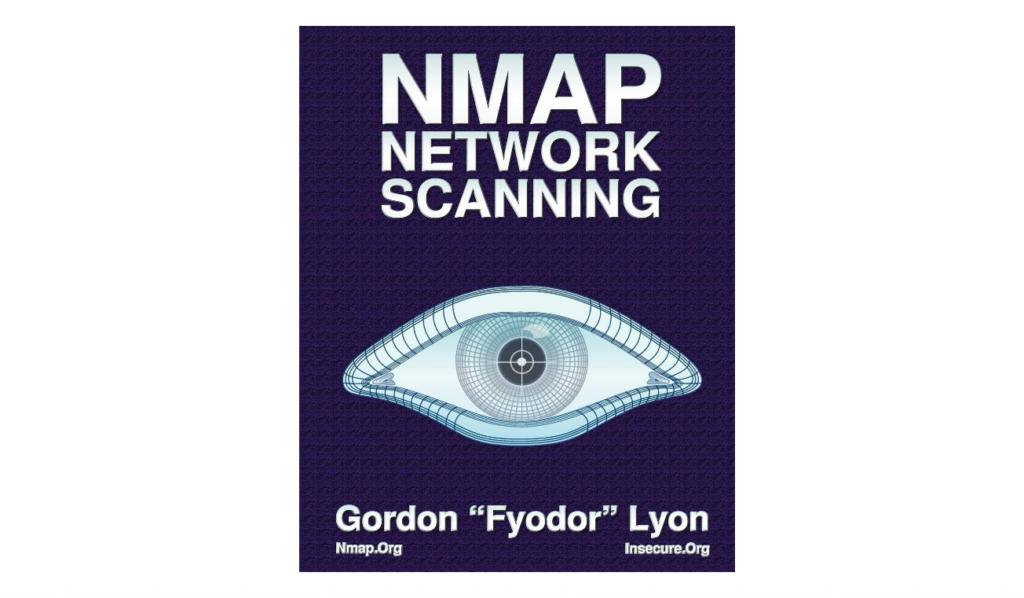
Summary:
Lyon's guide is the official handbook to Nmap, a powerful network scanning tool. It presents a deep exploration of Nmap's capabilities, from basic scanning techniques to advanced usage.
What You'll Learn:
The nuances of network discovery, the art of crafting advanced Nmap commands, and methods for optimizing security scanning.
Why You Should Read It:
Nmap is an essential tool for any cybersecurity professional, and this book offers an authoritative guide, straight from the creator of Nmap.
Quote From The Book:
"With the right tools and a little patience, we can find nearly anything."
About The Author:
Gordon Fyodor Lyon, known online as Fyodor, is the mastermind behind Nmap. Connect with him on LinkedIn and Twitter.
14. Kali Linux 2018: Assuring Security by Penetration Testing: Unleash the full potential of Kali Linux by Shiva V. N Parasram, Alex Samm, Damian Boodoo, Gerard Johansen, Lee Allen, Tedi Heriyanto, and Shakeel Ali
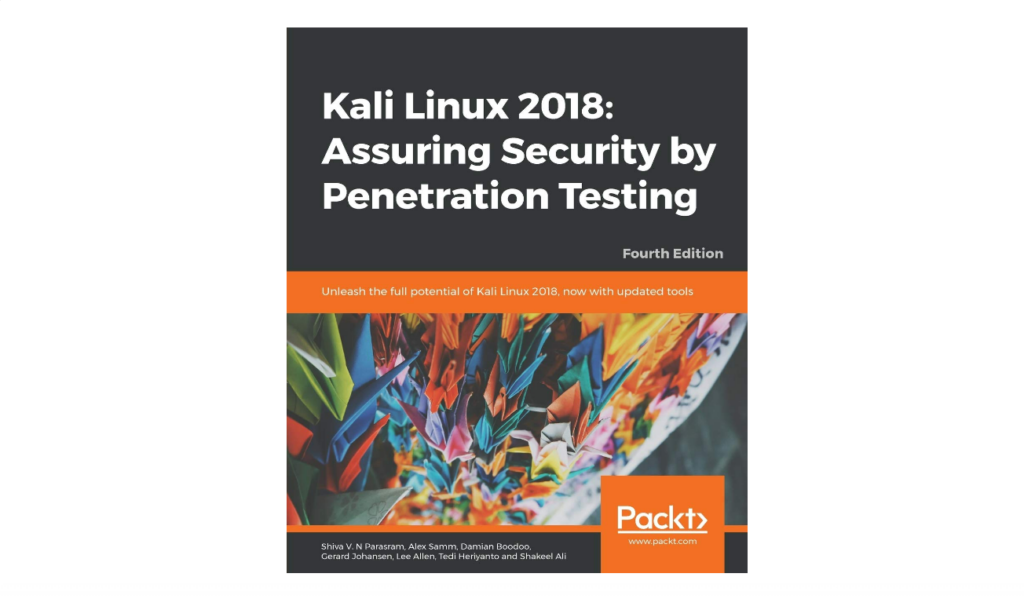
Summary:
This comprehensive guide offers a deep dive into Kali Linux, one of the most powerful pen-testing platforms. The authors cover its myriad tools and capabilities, ensuring readers can harness its full potential.
What You'll Learn:
Techniques for network scanning, vulnerability discovery, wireless network exploitation, and an array of attacks using Kali Linux tools.
Why You Should Read It:
For those seeking mastery over Kali Linux and its vast toolkit, this book serves as an invaluable resource, detailing both basic and advanced features.
Quote From The Book:
"In the realm of penetration testing, knowledge is power, and Kali Linux is the key."
About The Author:
The ensemble of authors - Shiva V. N Parasram, Alex Samm, Damian Boodoo, Gerard Johansen, Lee Allen, Tedi Heriyanto, and Shakeel Ali - bring together a vast array of expertise in cybersecurity and penetration testing.
15. Linux Basics for Hackers: Getting Started with Networking, Scripting, and Security in Kali by OccupyTheWeb
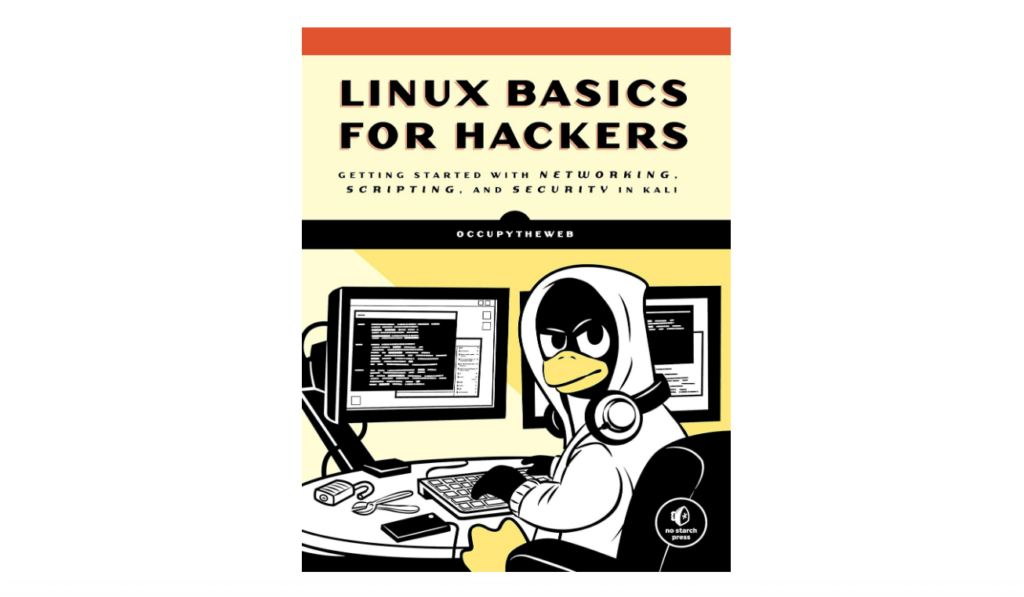
Summary:
Tailored for beginners, this book demystifies Linux, providing a foundational understanding using the Kali Linux distribution. It offers a perfect blend of Linux basics with hacking techniques.
What You'll Learn:
Fundamentals of the Linux operating system, basics of networking and scripting, and an introduction to security concepts using Kali.
Why You Should Read It:
For newcomers to the world of hacking, this book offers a gentle introduction, merging Linux fundamentals with essential hacking concepts.
Quote From The Book:
"Embrace Linux, and let it amplify your hacking abilities."
About The Author:
OccupyTheWeb is known for making cybersecurity and hacking accessible for beginners. While specific details are scarce, his expertise is evident in his contributions to the hacking community.
16. The Pentester BluePrint: Starting a Career as an Ethical Hacker by Phillip L. Wylie and Kim Crawley
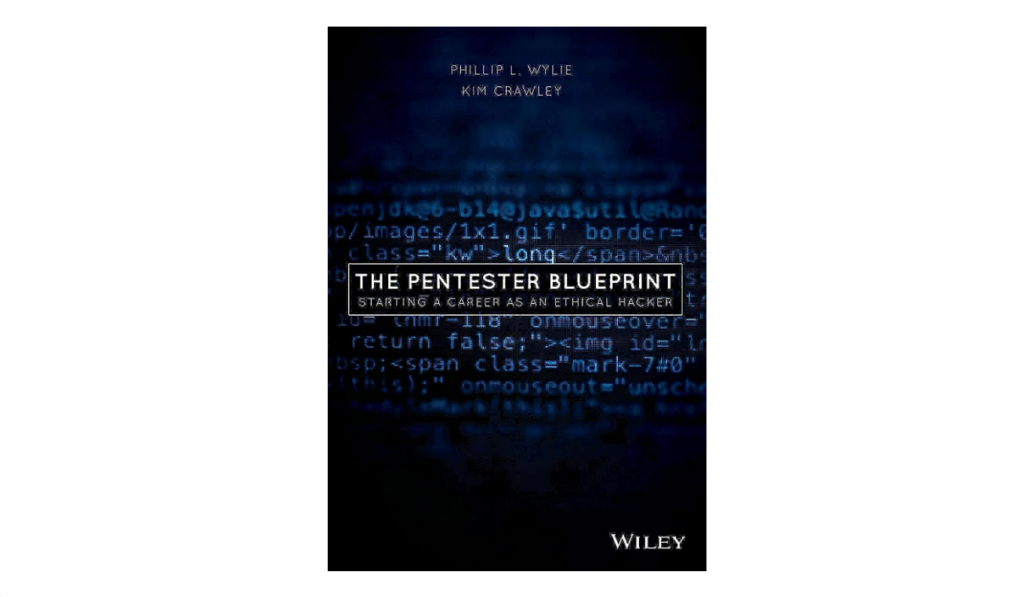
Summary:
This blueprint serves as a foundational guide for those venturing into the world of ethical hacking. Wylie and Crawley provide insights, advice, and practical steps to kickstart a career in penetration testing.
What You'll Learn:
The essentials of pen-testing, steps to transition into a career in ethical hacking, and a deep dive into the tools, techniques, and mindsets of professional pentesters.
Why You Should Read It:
If you're at the crossroads of choosing a career in ethical hacking, this book offers the guidance, expertise, and inspiration to take that leap.
Quote From The Book:
"In the world of cybersecurity, ethical hackers are the frontline warriors, defending and fortifying digital realms."
About The Author:
Phillip L. Wylie is a renowned figure in pen testing and cybersecurity. Connect with him on LinkedIn and Twitter. Kim Crawley is a celebrated cybersecurity writer and researcher. Engage with her on Twitter and delve deeper into her work.
17. Practical IoT Hacking: The Definitive Guide to Attacking the Internet of Things by Fotios Chantzis, Ioannis Stais, Paulino Calderon, Evangelos Deirmentzoglou, and Beau Woods
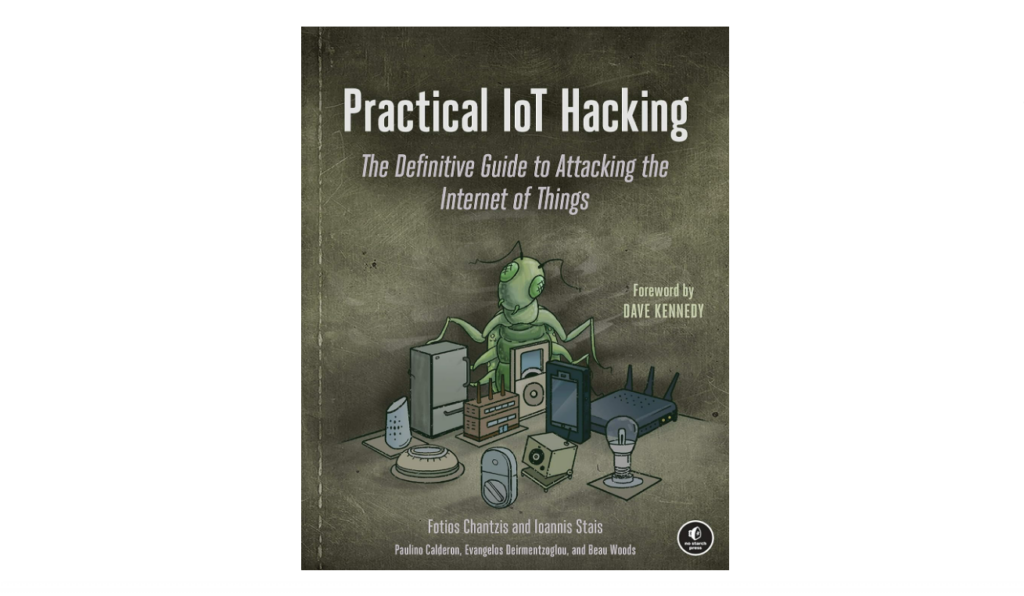
Summary:
As the Internet of Things (IoT) permeates every facet of modern life, this guide dives into the vulnerabilities and security challenges presented by IoT devices. The authors meticulously explore techniques to exploit and defend IoT systems.
What You'll Learn:
Methods to assess IoT device security, tactics to exploit common IoT vulnerabilities, and strategies to defend and secure IoT ecosystems.
Why You Should Read It:
With the proliferation of IoT devices, understanding their security landscape is crucial. This book provides an in-depth, practical approach to both hacking and defending IoT.
Quote From The Book:
"The Internet of Things is the future, but with innovation comes responsibility; the responsibility to secure."
About The Author:
Fotios Chantzis, Ioannis Stais, Paulino Calderon, Evangelos Deirmentzoglou, and Beau Woods bring a collective powerhouse of knowledge in IoT security. Their diverse experiences and insights make them the leading authorities in the domain.
Which Penetration Testing Books Do You Recommend?
While I've endeavored to provide a comprehensive list of essential penetration testing books, the cybersecurity landscape is vast and ever-evolving. If there are any penetration testing books you believe should have been on this list, please share your recommendations. Your insights will be invaluable in ensuring that fellow readers have access to the best resources in the field.

